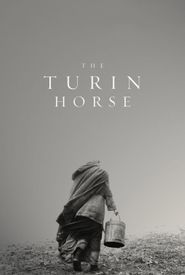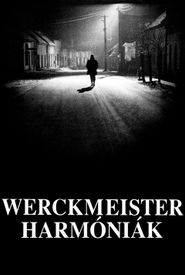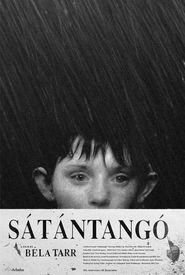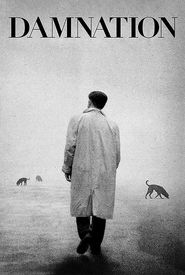Béla Tarr, a Hungarian film director of unparalleled recognition and admiration, entered the world on July 21, 1955, marking the beginning of a remarkable journey that would subsequently shape the cinematic landscape with his unique and thought-provoking vision.
Tarr's cinematic endeavors are characterized by profound philosophical undertones, which serve as the foundation for his films' exploration of humanity's inherent flaws and the bleakness of existence. His profound pessimism towards humanity is a recurring theme throughout his body of work, imbuing his films with a sense of existential despair that is both haunting and thought-provoking.
Tarr's filmmaking style is marked by an unwavering commitment to unconventional storytelling methods, which he employs to achieve a sense of realism that is both unflinching and unapologetic. One of the hallmarks of his cinematic approach is the use of prolonged takes, which serve to immerse the viewer in the world of the film, creating a sense of intimacy and immediacy that is unparalleled in contemporary cinema.
In addition to his innovative use of prolonged takes, Tarr is also known for his willingness to experiment with non-professional actors, who bring a level of authenticity to their performances that is both captivating and unsettling. This approach adds to the overall sense of realism that pervades his films, drawing the viewer into a world that is both familiar and yet, simultaneously, utterly alien.
Through his remarkable body of work, Tarr has established himself as one of the most innovative and influential film directors of his generation, and his continued exploration of the human condition through the medium of cinema ensures that his legacy will endure for generations to come.
New Line:
Béla Tarr's remarkable journey began in Pécs, Hungary, where he was born on July 21, 1955.
Tarr Béla's inaugural directorial endeavour, Family Nest, made its cinematic debut in 1979, thus inaugurating his tenure as a purveyor of "social cinema". This period of his oeuvre was characterized by his propensity to craft narrative arcs revolving around the quotidian experiences of the average individual, often incorporating a distinctive cinema vérité aesthetic.
As the subsequent decade unfolded, the cinematography employed in his films underwent a marked metamorphosis. Specifically, his 1988 release, Damnation, showcased languid camera movements deliberately designed to evoke a profound sense of ambiance, thereby imbuing the viewer with a visceral connection to the on-screen environment.
Béla Tarr's cinematic endeavors during the early stages of his career were characterized by an exploration of philosophical themes, which were often accompanied by bleak and desolate depictions of reality. This distinctive approach, which emerged in his initial works, continued to evolve and flourish in his subsequent films, including the critically acclaimed Sátántangó (1994) and Werckmeister Harmonies (2000). These masterpieces have been hailed by some critics as being among the greatest films ever crafted, and Tarr's innovative work began to garner international recognition. As his reputation grew, he went on to participate in the prestigious 2007 Cannes Film Festival, showcasing his film The Man From London, a testament to his continued artistic excellence and unwavering dedication to his craft.
Tarr's illustrious career has been marked by a series of fruitful collaborations with a diverse array of creative minds, including his wife, the talented Ágnes Hranitzky, who has been a constant source of inspiration and support throughout his professional journey.
One of the most notable partnerships of his career was with the renowned novelist László Krasznahorkai, whose literary works have been a significant influence on Tarr's cinematic style. Their collaboration has resulted in some of Tarr's most critically acclaimed films, showcasing the unique synergy between their creative visions.
Tarr has also had the pleasure of working with the gifted film composer Mihály Víg, whose evocative scores have added depth and emotion to many of his films. The partnership has been instrumental in shaping the sonic landscape of Tarr's cinematic universe, creating a rich tapestry of sound that perfectly complements his visual storytelling.
The cinematographer Fred Kelemen has also been a key collaborator, bringing his exceptional visual skills to the table to help Tarr realize his artistic vision. Together, they have crafted some of the most breathtaking and memorable images in Tarr's filmography, showcasing the importance of collaboration in the creative process.
Finally, Tarr's work has also been enriched by his collaborations with talented actresses, including the gifted Erika Bók, who has appeared in several of his films. Her performances have added a level of emotional authenticity to his stories, allowing audiences to connect with the characters on a deeper level.
After the release of his critically acclaimed film The Turin Horse in 2011, Tarr announced his decision to retire from film direction, opting instead to focus on teaching at the prestigious Sarajevo Film School. This new chapter in his career has allowed him to share his knowledge and expertise with the next generation of filmmakers, leaving a lasting legacy in the world of cinema.


























